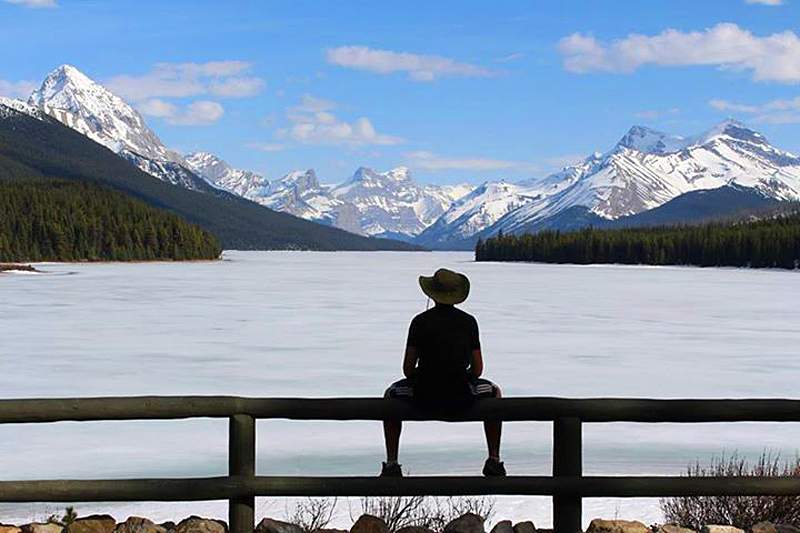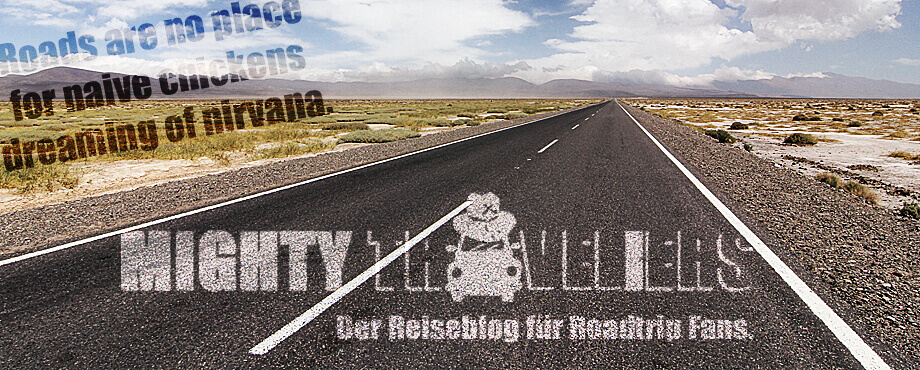Zuhause in der Welt – Interview mit einem Langzeitreisenden
Das erste Mal trafen wir Rhys an der Abbruchkante der Iguazú Wasserfälle. Er hatte sich gerade seinen Weg durch den Dschungel gebahnt. Das Ziel: Mit allen Mitteln, die gesalzenen Eintrittspreise umgehen.
Rhys wollte meine Kamera ausleihen. Seine war in Streik getreten. „Das ist die Gischt. Das Gleiche ist mir an den Niagara Fällen passiert,“ versuchte ich den Australier zu belehren. „This trip?“ Wie, this trip? Da mussten wir nachhaken.
Seit 3 Jahren reist Rhys nun schon durch die Welt. Direkt nach dem College, hat er sich auf den Weg gemacht. Ohne Geld. Ohne Plan. Wie lange er noch reisen wird, weiß er nicht. Mindestens 3 weitere Jahre. Verrückt! „Nein, typisch Aussie,“ meint Rhys, der seine Nächte fast durchgängig auf Hostelböden verbringt und sich ausschließlich von Wasser und Brot ernährt. Außer sonntags. Sonntags gibt´s Tomaten.
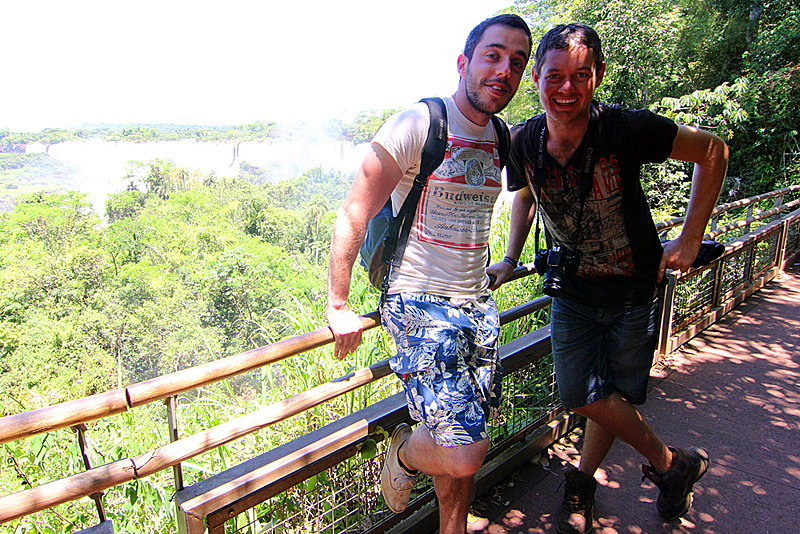
Laurens & Rhys an den Iguazú Fällen
- You have been travelling for 3 years now. Where have you been so far? How long do you plan to continue your discovery of the world?
I started with my home country of Australia. Soon after I started seeing Australia, I decided I wanted to see everything in the country. I saw about 85% in my first car, due to the limitations of the vehicle. I then upgraded my car and did another trip around Australia, incorporating the things I was unable to see before. I drove a total of 106,000 km. I then flew to New Zealand, bought a car, and saw everything in that country.
Once I finished New Zealand, I flew to Hawaii, then Canada, Alaska and the rest of the US. I then travelled all through Costa Rica, Panama, Colombia, Peru, Bolivia, Chile, Patagonia, Argentina, Brazil, Venezuela, Jamaica, Dominican republic and Florida.
I am now flying to Asia, starting in Nepal.
I don’t know how long I will continue this trip, but at least another 2-3 years of full time travelling, until I see the whole world properly. I feel I will always travel, but not full time.
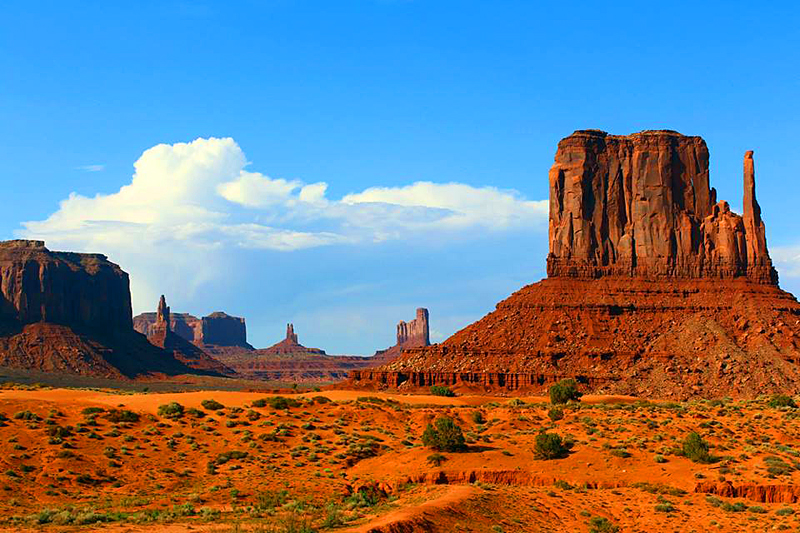
Death Valley ©Rhys Clarkson
- How did you get the idea for eternal travelling? How did your friends and parents react, when you told them about your plans?
I first started travelling with the plan for a few weeks, possibly 2 months at the most. But soon after seeing some things in Australia, I got the ambition to see everything in Australia. After I saw absolutely everything in Australia, I decided I wanted to see everything in New Zealand. Then once I saw everything, I got the ambition to see everything in the world. I find the way I travel is ultimate freedom and I have a love for nature and landscapes, which drives me to continue to see more and more. Meeting new people, experiencing new things, places and cultures is an added bonus. I am in no rush to stop this way of life.
My parents were always supportive of my travels. I have even inspired them to travel more themselves. My grandparents were more saying I should concentrate on a good career and a good future. But now they see how well I am doing and are happy to see me do what I do. I don’t have too many friends from home, since I finished at school, but they tell me that I inspire them. Some people I feel have a touch of jealousy to be honest.
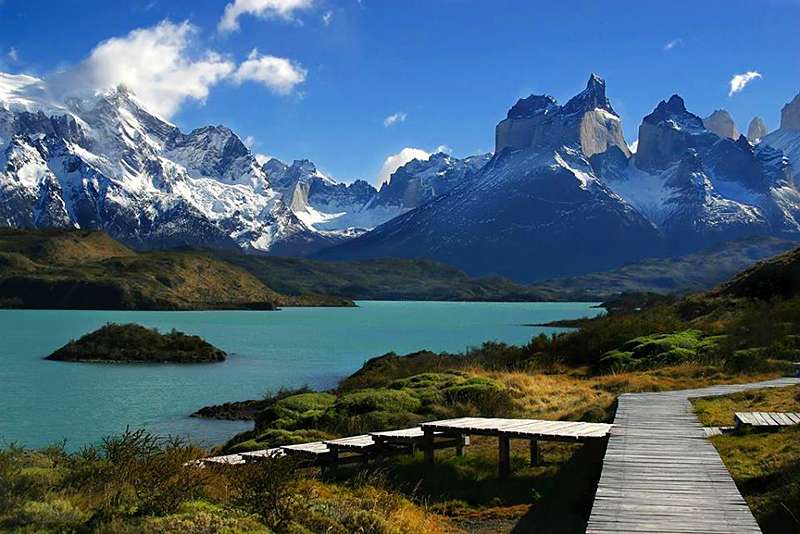
Patagonien ©Rhys Clarkson
- While travelling, do you always know which country you want to visit next? Or do you sometimes change your plans spontaneously?
I mostly know which country I want to see next. I try to have a rough route and direction, as I like to feel as if I have a rough direction to effectively see what I want to see. I have to think of the big picture as I have to take into account the different seasons. If I was travelling shorter and less places, I would be more spontaneous. As I travel, the people I talk to, I get a good sense of countries worth visiting. If it wasn’t in my original idea, I would then incorporate it. I do have a rough direction and time scale I wish to spend in each continent (for seasonal reasons), but once in a country, I discover it more spontaneously and learn bit by bit of where I should go whilst there. Using other´s prior experiences and opinions and using internet guides and blogs. I don’t use guide books. I don’t have a real time scale, only when I feel I have adequately seen and experienced a place, I am comfortable to move on.
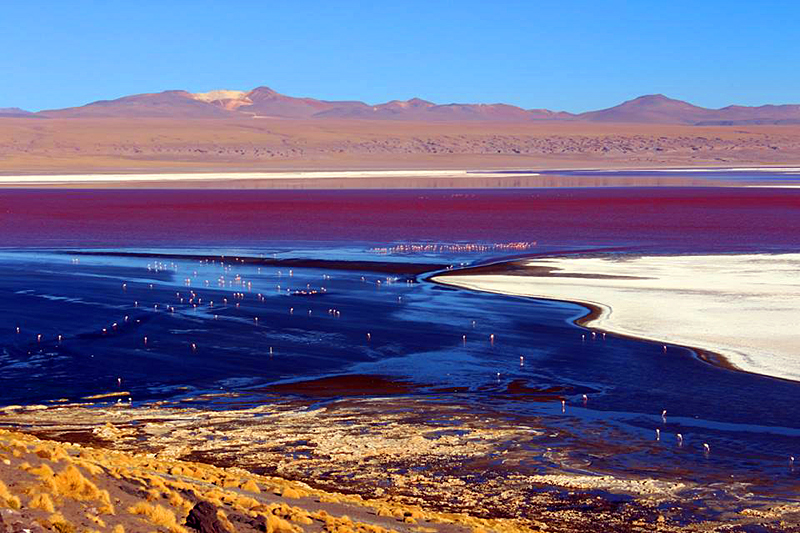
Atacama Wüste ©Rhys Clarkson
- Of all the places you have been to, what was the most surprising and astonishing?
I have been to too many places, which I’ve been surprised and astonished by, which makes it a hard question to answer. But I feel the most astonishing and surprising place is the Canadian Rockies. My mind has never been so blown away by the beauty and scale of the landscapes. I also feel strongly about Utah, Bolivia, Patagonia and The Kimberly region in Australia. But the rockies take the cake!!
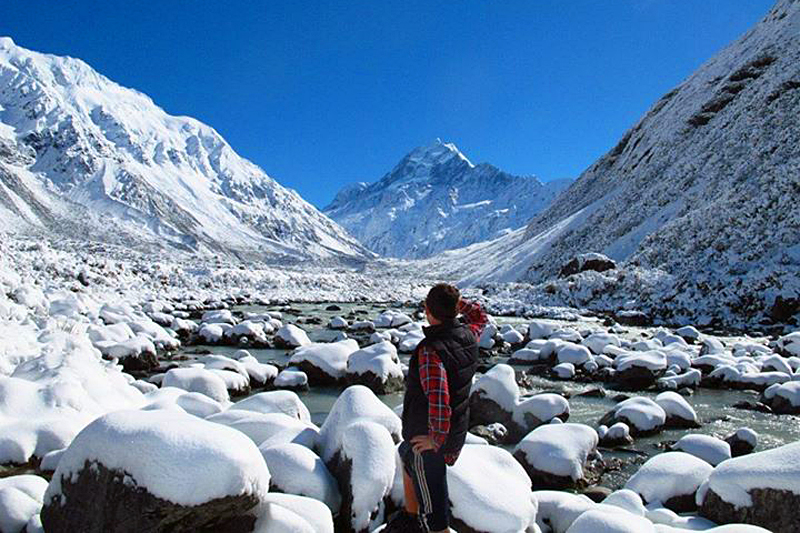
Neuseeland ©Rhys Clarkson
- Being so far away from home, does it make you miss some Aussie stuff, like food, lifestyle, people?
At the beginning of my trip in North America, I started to miss Australian food like meat pies and even the Australian toilets. A few weeks later, I really missed the lifestyle and familiarity of home, even the bush and nature, in which my house is in. But the longer I travelled, the less I missed home and the easier it became. I rarely missed my family and friends. But a few times, when things were really tough, I missed my parents. But now I don’t miss anything, but not meaning I don’t care anymore about home. I love my home and family very much. I have just learnt and adjusted to be away from it.
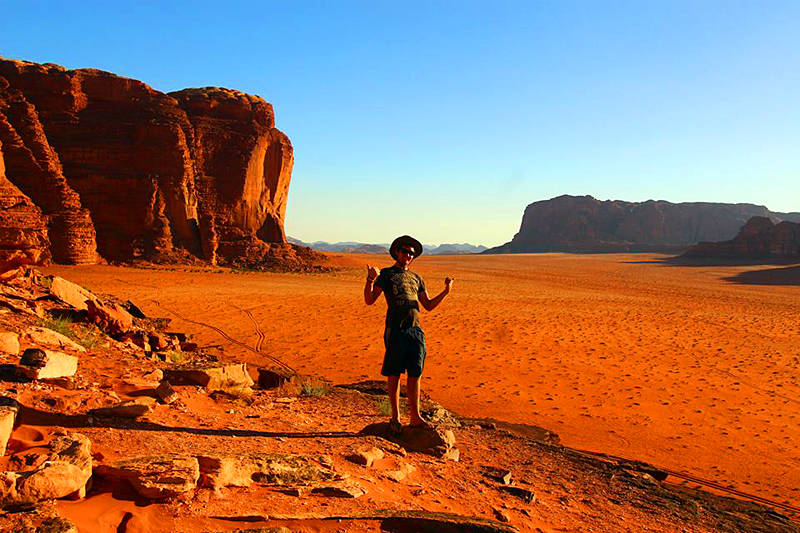
Jordanien ©Rhys Clarkson
- Did you work while traveling, or how did you keep your finances in order?
I did work whilst I was travelling around Australia. But only a little bit. I worked less than 3 months each year I travelled Australia, which was 2 years. I picked apples in that time. When I travel overseas, I do not work. I can keep my finances in order by using savings I have built up from a lot of hard work during my time in school and a few months after school and those months of work whilst travelling Australia. I also have the self control to spend very little and live off the extreme basics, which makes the money last longer. I have worked extremely hard and have always been a saver, so financially I will never have any worries. I live cheaply by choice and for the thrill and excitement of living rough.

Patagonien ©Rhys Clarkson
- You said that you live very cheap. Can you tell us 3 ways to save money while travelling?
I can tell you heaps of tips to save money, but the 3 best ways for me are as follows.
Firstly a massive expense is accommodation. Hostels may be cheap, but over the course of a trip, especially a long trip, it will be very expensive. So I developed a sleeping arrangement, so I can sleep anywhere, even outside. It is called a swag (an Australian camping concept which I adapted to be small and lightweight.) I chose to sleep in that most nights. In cities, I use to find quiet places to sleep stealthily as not to be caught nor spotted to keep me safe and out of harms way. But I have run into a few dangerous encounters doing this, so I now chose to sleep in hostels in larger more dangerous cities. Even then I talk my way into cheaper rates, even being able to stay for free a lot of the time, being on my own helps with this. Earlier on my travels I used to sneak into hostels and sleep in vacant beds, couches or even bathroom floors to save a buck, but I try to travel with more integrity now, so I no longer do that.
Secondly food is a big expense. So I save money by not eating out in restaurants. I buy staple ingredients to live off, which include powdered milk, some sort of cereal, bread, a filling like tomatoes and mayonnaise. And I try to invest in a more nutritious meal once a day, but even then I find the cheapest best valued meal I can find, which isn’t a sit down restaurant meal. Not staying much in hostels means I do not have a kitchen to be able to cook something, so I rely on eating things which I don’t need to cook and buying food on the street. I do try and cook something the odd times I am in a hostel. I also don’t drink alcohol, so I save a lot of money with that as well. But mainly I don’t drink for medical, moral and logical reasons.
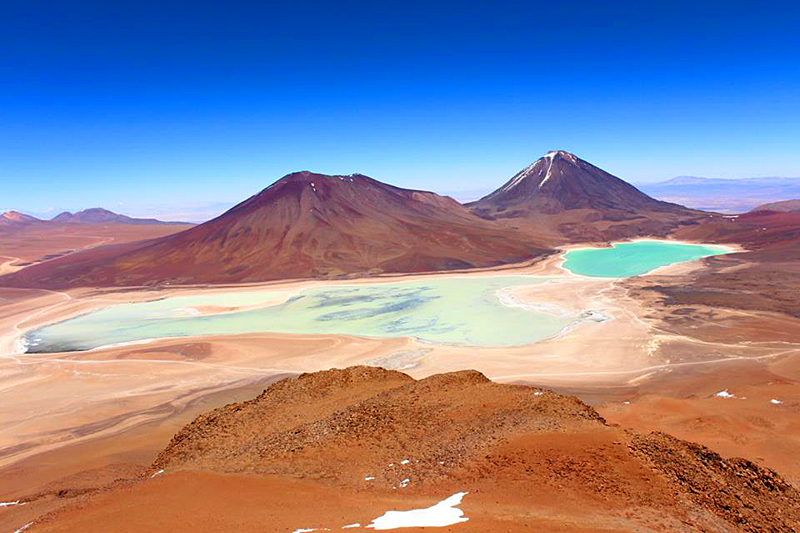
Atacama Wüste ©Rhys Clarkson
Thirdly a big expense on a trip is tours and transport. With tours I chose not to be a part of. I find my own way to an attraction and discover it on my own. Allowing me to see whatever I want and for however long I want, which is almost always a lot cheaper. Also being on my own and not on a tour, I can find ways to talk my way into the place for free or even sneak around a fence or whatever way I can find to gain entry for free, making it all the more thrilling and enjoyable. With transport I never use taxis, I always walk. When it is too far to walk, I use public transport like buses, trains and, depending on the country, collectivos, cars, bikes or vans. And when appropriate hitch hiking. When travelling long distances, I don’t fly. I take buses or even hitch hike. Taking overnight buses is also cheaper and you even save money on a hostel.
Another way to save money, is to negotiate the price and barter on absolutely everything, and to shop around for the cheapest price, for things like goods, hostels and bus tickets. Also knowing how to find the cheapest flights, when flying overseas, for example finding the cheapest airline, the cheapest airport, the cheapest day and the cheapest time, and finding the site which gives you the cheapest of all those things.
